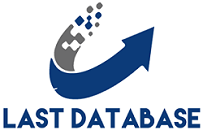The Value of Toll-Free Numbers (H2)
1-800 numbers Email List are a category of phone numbers in North America where the call recipient, not the caller, shoulders the cost. This convenience factor makes them a strategic choice for organizations seeking to provide easy accessibility.
(H3) Here's why 1-800 numbers are so widely used:

Reduced Call Costs for Customers: For businesses and organizations, offering a toll-free number eliminates a potential barrier for customers seeking information or assistance. This encourages communication and fosters positive customer experiences.
Increased Accessibility: 1-800 numbers provide a single, memorable point of contact, regardless of the caller's location within the designated service area. This simplifies communication and streamlines interactions.
Branding and Trust: A prominently displayed 1-800 number on marketing materials and websites creates a sense of professionalism and customer focus.
Who Uses 1-800 Numbers? (H2)
Now that we understand the benefits, let's look beyond the telemarketing stereotype and see who utilizes 1-800 numbers: (H3)
Businesses: From airlines and retailers to local plumbers and electricians, companies across industries leverage 1-800 numbers for customer service inquiries. This allows customers to get help without worrying about phone charges.
Non-Profit Organizations: Charitable organizations and advocacy groups often use 1-800 numbers for various purposes. These might include donation hotlines, volunteer recruitment lines, or general inquiries about their mission and work.
Government Agencies: Government departments may utilize 1-800 numbers for citizens to access information or services, report issues, or schedule appointments. This simplifies access to government resources for the public.
Identifying Telemarketing Calls (H2)
While telemarketers do use 1-800 numbers, here are some ways to spot them: (H3)
Unsolicited Calls: Telemarketing calls typically come out of the blue, even if you haven't shown interest in the product or service.
Scripted Sales Pitches: Telemarketers often follow scripts that highlight product features and promotions. These scripts can sound impersonal and repetitive.
High-Pressure Tactics: Telemarketers may use pushy tactics to close a sale on the spot, making you feel pressured to commit before you've had time to consider the offer.
Taking Control of Your Phone (H2)
If you're overwhelmed with unwanted telemarketing calls, you have options to regain control:
National Do Not Call Registry: Register your phone number with the National Do Not Call Registry to significantly reduce telemarketing calls. While it doesn't eliminate them entirely, it can make a big difference.
Request Removal from Lists: If you receive a telemarketing call, politely ask to be removed from their calling list. Most reputable telemarketing operations will comply with your request.
Call Blocking Features: Many phone providers offer call-blocking features that allow you to screen or block unwanted calls based on caller ID or pre-set criteria.
The Bottom Line (H2)
The next time your phone rings with a 1-800 number, take a breath before assuming it's a telemarketer. It could be a customer service representative ready to help, a charity seeking your support, or a government agency with important information. However, if it is a telemarketing call, you have the right to politely decline and take steps to limit unwanted calls in the future. Remember, 1-800 numbers offer a range of valuable services beyond telemarketing.


